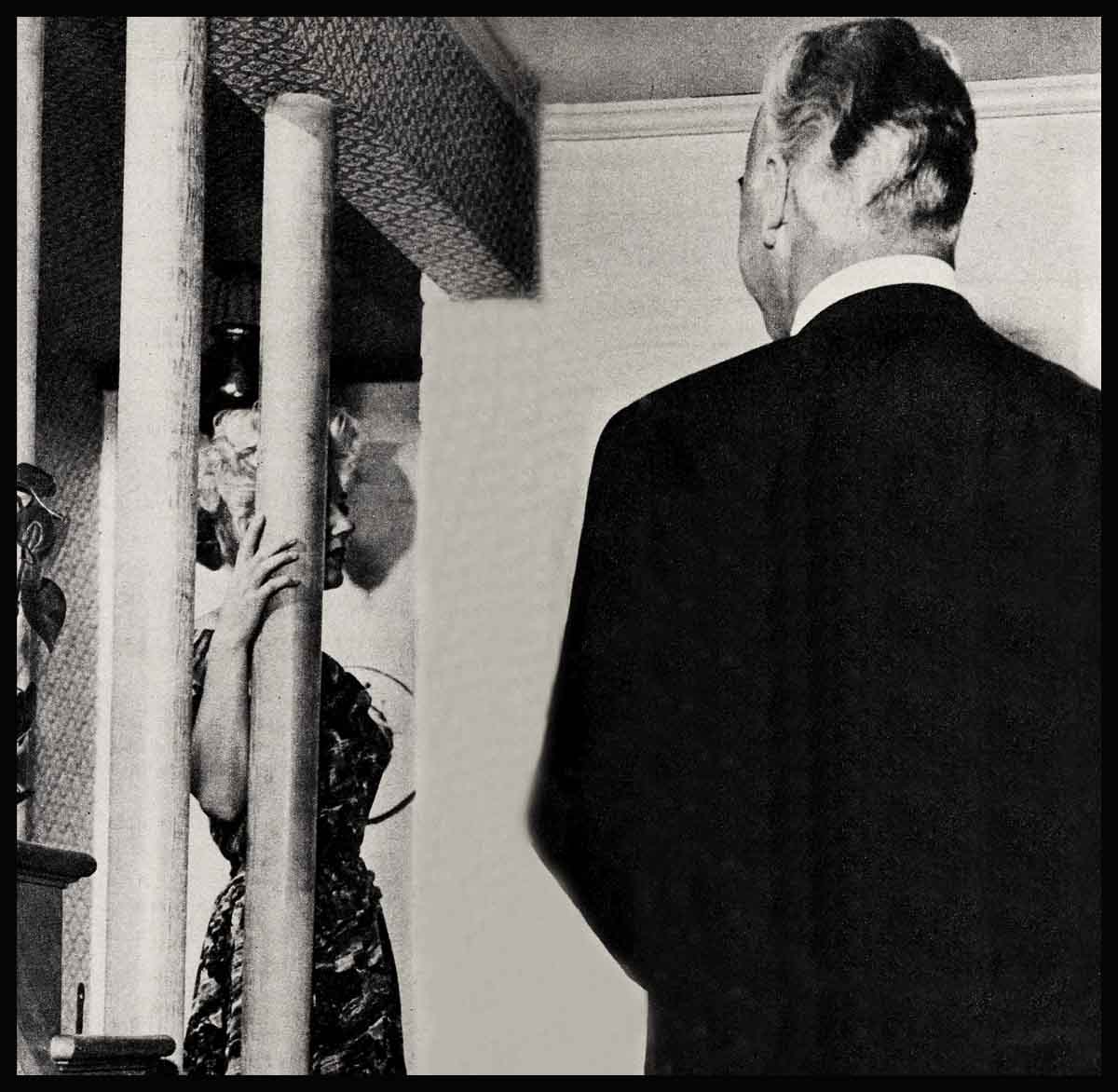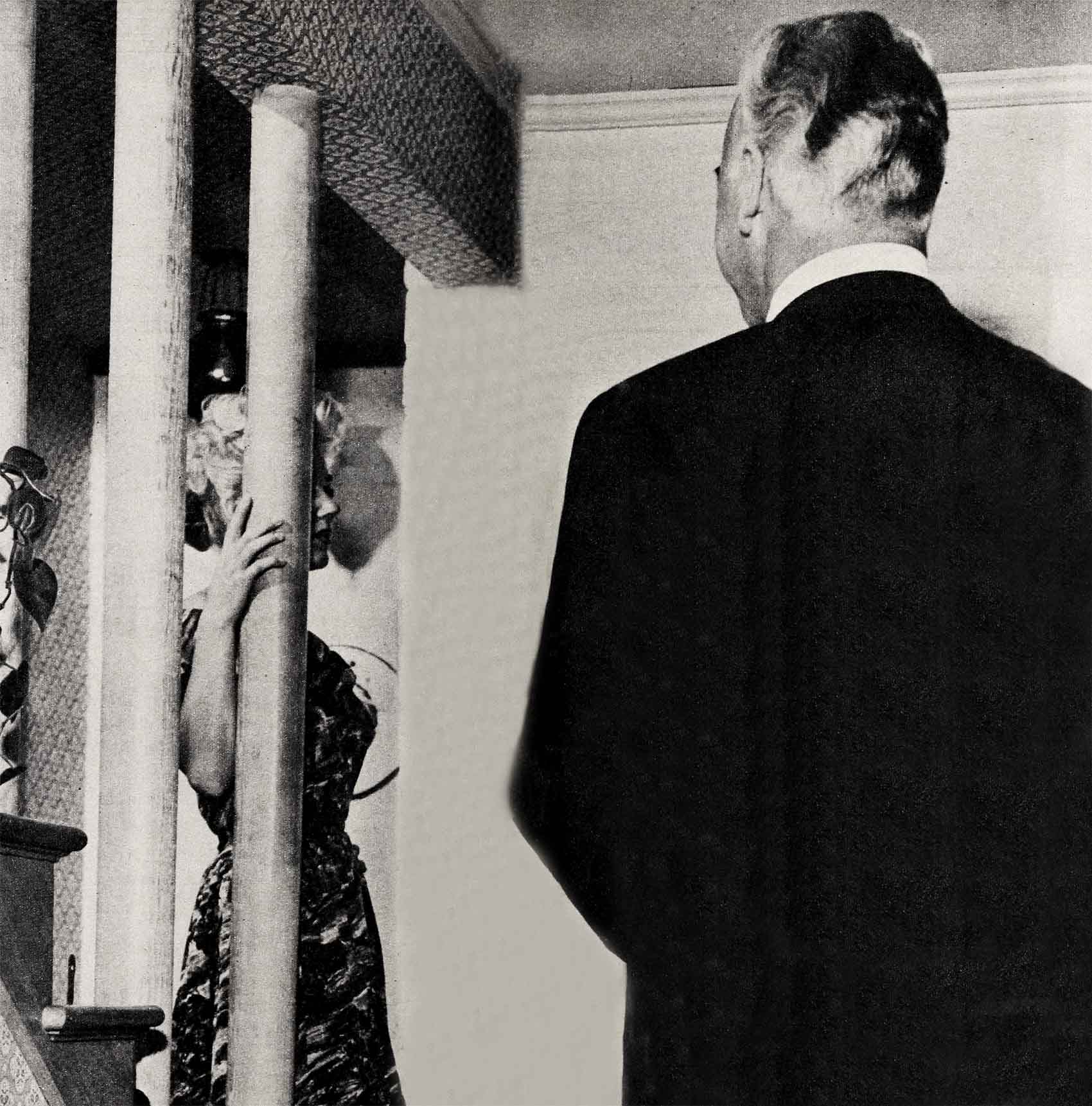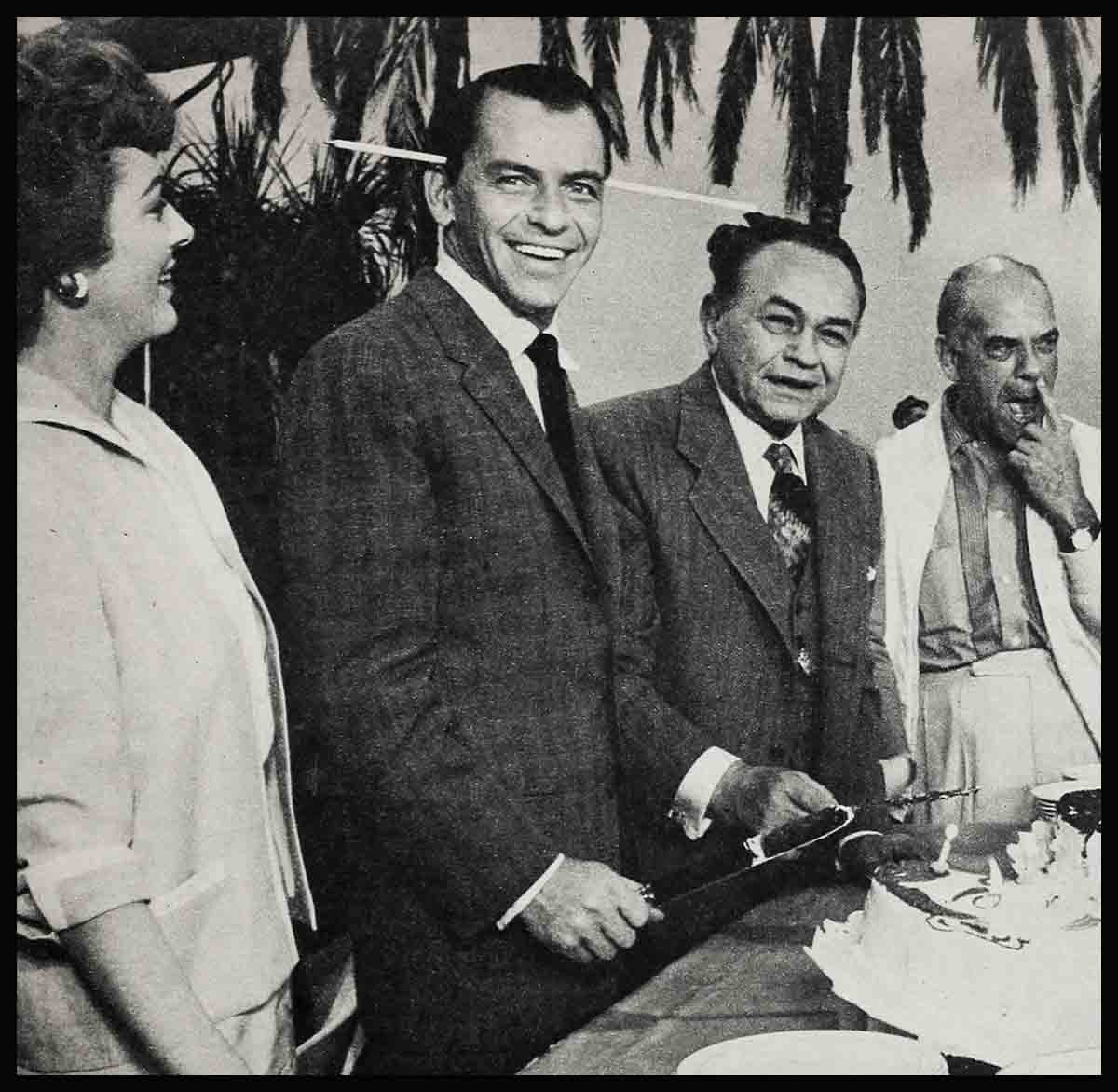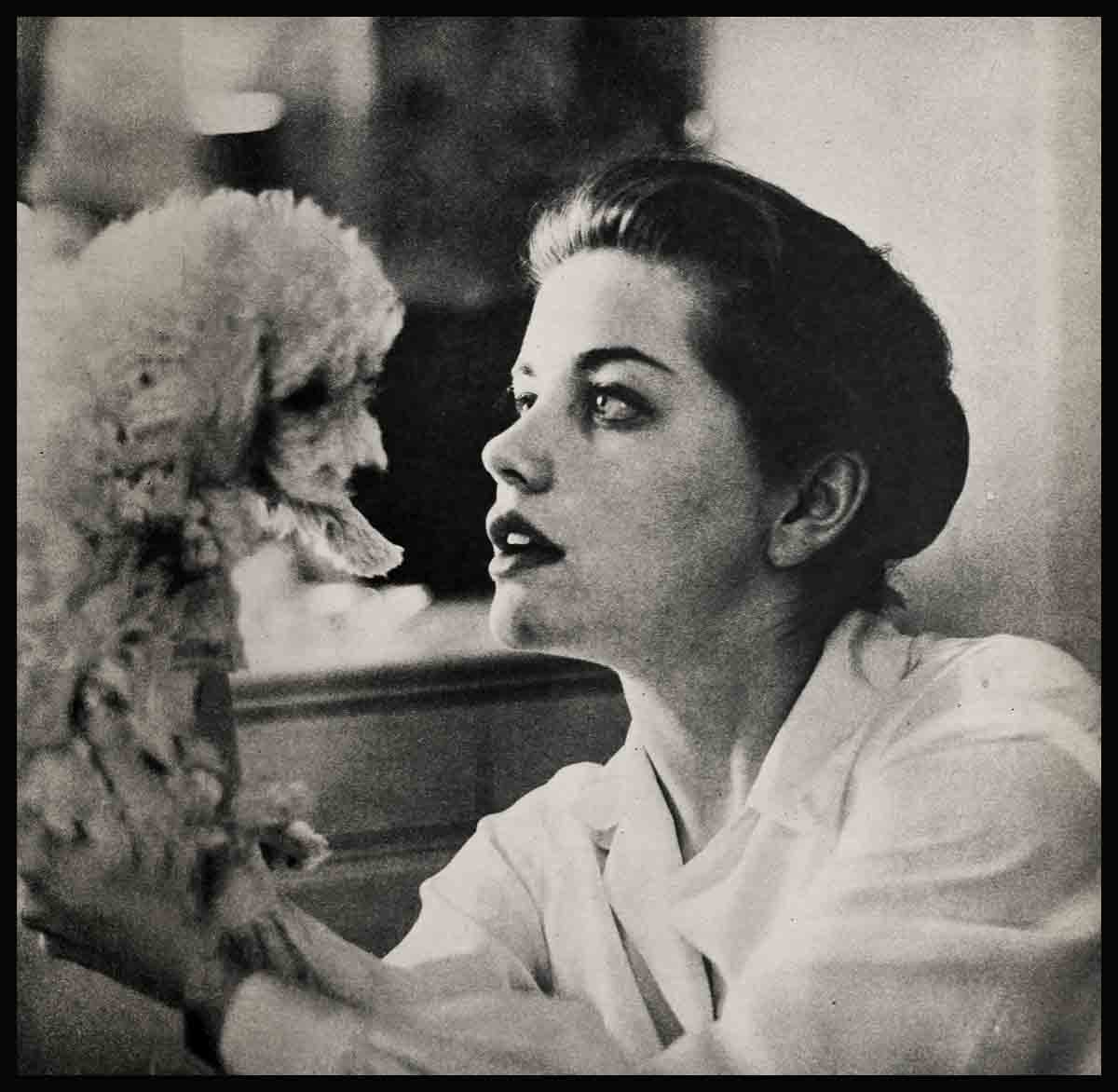
Hollywood’s Greatest Love Story
It was a day in late May in Southern California, and whisper this gently so that the Chamber of Commerce won’t hear you, but May days in this boastful neck of the woods are more apt than not to be perfectly horrible.
This particular May day in 1937 was horrible, and then some. A woolly fog that dripped off the trees and shrouded out the hills hung tight to the ground. It was as chilly as a banker’s smile and the handsome man, driving down Hollywood Boulevard in his opulent car, felt it was a day that exactly matched his mood.
He despised himself for being in such a mood. Because he was intelligent, he knew that he had everything a man could desire, with one exception. He had health and he had wealth. He owned a beautiful ranch and a magnificent yacht. He had a town house and a beach house and a mountain lodge. He had fame and he worked almost as much as he wanted to.
The exception was that little thing that plagues all romantics. He wasn’t in love. The evidence lay in the divorce records that he was a failure at love. On screen and off, he typified what is known as a “man’s man.” He loved outdoor life, hunting, fishing, riding. When he chose, he could drink any man he had ever met under the table and still be able to drive home safely. Everyone called him a great sport, a fine mixer. But, in his secret heart, he knew anything he ever did, whether it was merely drinking a cup of coffee or extravagantly taking his yacht to some distant island, was meaningless unless he shared the experience with a girl. A beautiful, exciting girl.
“Hi, boy, how about a drink?”
His manager’s voice, calling from curbside, shook Bill from his uncomfortable reverie. “That’s the best offer I’ve had all day,” he called back. “Meet you in the Roosevelt bar as soon as I park this crate.”
After the second martini, the manager said, “Look, pal, you can’t tote this torch all your life. You take women too seriously. You think you can find a doll who looks like Venus who will really dote on the simple life? What you really need are a couple of hot numbers who will be interested in a couple of playful weekends. You must have some dillies like that listed in your little black book.”
“If we weren’t such old friends,” the actor said, “I’d never confess this. But I’ve never had a book of special numbers.”
“A guy like you? Hey, now, who are you kidding?”
“I’m telling you the truth, so help me. I guess this makes me a fool.”
“It makes you the prize romantic sap of the ages. Imagine a guy dreaming of marriage every time he dates a girl.”
The next day was a Saturday and his manager rang through just before noon. “This is probably the effect of my hangover, but I’ve found a girl for you. Your kind of a girl. The nice, marrying kind.”
“Now tell me what’s wrong with her.”
“Outside of having been a fan of yours since the first picture of yours she ever saw,” the manager said, “I can’t see a thing wrong. She’s got red hair and she’s really stacked. She’s a darned good actress too. I know you never want phone numbers but this is hers and she is waiting to hear from you right now.”
“A blind date is one of the things I’ve never had before, either.”
“All right,” said Bill’s manager. “Go on being lonely. At least that means you’ll end up with a lot of dough.”
Her voice was low and husky, as she answered the phone. She was obviously shy, as she gave him her address. She said she had never done such a thing before, either, but she really felt as though she knew him and she’d like to have him meet her mother.
It was a very little house and her mother was young and delightful. He was completely tongue-tied, standing there, very conscious of his flashy car parked outside, of the broad-brimmed Stetson in his hands. Then he heard steps overhead, steps descending the staircase, and he got his first shock when he saw those ankles coming down toward him.
For they were perfect. And the legs above them perfect, too. And the slim waist, suddenly appearing, and then, those sweater fillers! He was a gone man when he could glance up at her impish little face with her direct eyes, flaming red hair.
If he had obeyed his impulse, Bill would have asked her that very moment to marry him. Instead, he heard himself saying, “I’ve got my manager and his wife and John Blevin and his wife coming down to my ranch for the weekend. Could you come, too?” It was her mother who answered first, “Oh, I know Mary Blevin. She’s a fine woman.”

The girl laughed softly. “I’ll have to be back in town tomorrow morning for publicity shots. Would it be too much trouble for you to run me back at that hour?”
He heard what the mother and daughter were saying without putting it into words. They trusted him to act like a gentleman and he was to be sure that the girl would act like a lady.
“She’ll keep that date right on the dot,” he assured her mother, and he knew the older woman heard what he was saying in between the lines, too.
I was after six the next afternoon when he returned to his ranch and his guests began howling at him. “Where on earth have you been? Do you realize you left here at eight this morning, to make town by eleven, and that you should have been back by two? What happened?”
“I’m in love,” Bill said. “I didn’t have any idea what time it was. I guess I must have just-been driving around, all day. I’m going to ask her to marry me.”
“You’re going away on location tomorrow, thank God,” his manager said. “You won’t have time to propose.”
“Excuse me,” Bill said. “You and the gang stay here as long as you like but I’ve got to return to town for a piece of unfinished business.”
The girl was home and she looked even prettier than she had that morning. He sat in a deep chair and she sat on an ottoman at his feet, looking up at him. “I’m going to ask you something,” he said, “and if you say ‘yes,’ I’ll faint.”
The color flamed in her face but she smiled. “Be prepared to faint then,” she said, “because I do say yes.”
That was the first time he kissed her. She reached to just a little above his shoulder, as they stood clasped in one another’s arms, and he could feel her heart beating as excitedly as his against his chest.
“My divorce becomes final in three weeks. Will you marry me then?”
“I’ll have to wear a ready-made dress, if I do.”
“You’ll probably have to wear slacks, because I’ll be on location.”
“I’d marry you if I had to wear overshoes and live in an igloo.”
Their wedding date was June 5th, 1937, and it was a Saturday when he had worked all day long. They were married quietly, with only her mother and one close friend as witnesses, and they spent the night at his ranch and his heart was startled and delighted at her innocence and her sweetness and her warmth. He was happy as he never dreamed he could be and he told her they would never quarrel, that they would have the perfect love.
So, three days later, they were in a fearful row. Now they couldn’t tell you to save them what it was about, but it had something to do with her youth and innocence and much to do with his temperament. He didn’t realize he was imperious, and even spoiled by his stardom. But in about five seconds he knew she didn’t have that red hair for nothing, and he told her she could pack and go home for all of him and good riddance.
Then he heard her sob and felt himself falling to pieces inside. He turned and saw the tears coursing down her face and saw her running toward him and she was in his arms. “Bill darling, I love you, I don’t care which of us was right or wrong. I love you. That’s all that matters.”
The location over and back at the ranch, he found what a baby he’d married. She didn’t know a thing about cooking or running servants. She didn’t know how to order, and she barely knew which end of a horse was which. Most of the time this amused him, but occasionally it riled him and his temper would flare and hers would respond. But the end of the quarrel was always the same. She’d be in his arms, telling him how she loved him, and he’d be responding that he loved her.
Which was well, because things weren’t going quite so well career-wise with him by early 1939. Oh, his pictures were being shot, all right, but his scripts were inferior and the sales of the pictures were bad, which meant he got booked mostly into Hitching Post theaters, which automatically forced him into a small box office league and he considered this unjust. He believed in the character he was portraying, but he knew the presentation of it was all wrong.
He talked it over with his wife one evening. “If I could buy the rights to this character, I could control it,” he said. “It would take a lot of cash, though. I’d probably have to sell something.”
“Why not the hunting lodge,” she said. “We don’t get up there much anyhow!”
“But suppose I’m pulling a boner and lose all the money?”
“Then you’ll lose it.”
He found the rights to the character more expensive than he anticipated. In fact, he could buy only a few of them with the price of the mountain place. War came to Europe and the sale of his pictures sank even lower. He worried and fretted and one day his wife came to him and announced that she was giving up her career.
Her career was one of those unspoken things between them. He knew how ambitious she had been for it, yet, gradually, he saw how quietly she managed to be free when he was working, so that she might serve him. He had never thanked her for that because he was afraid she might think he did want her to quit acting. He couldn’t ask her to make that sacrifice. “But you’ve got it in you to become a great star,” he said.
“Look,” she said, “are you going to force me into elaborate reasons for being lazy?”
He lost all sense of time and space as he kissed her. And that moment became another of the silent secrets they shared, as he realized she had dodged for both of them the danger that with his career going down, hers might go up and separate them.
By 1942, things were getting a little rougher with Bill’s career. America was in the war. Besides the adventures of living news, his films looked, and were, childish. Now, he openly battled with his producer and finally, by selling the ranch and the beach house, he secured all rights to the character He portrayed and he decided to finance and make his own pictures.
Which he did, for three of them, only to discover he couldn’t sell them and, later that he couldn’t get any further bank loans to produce any more of them.
There was, in fact, only one solid thing in his life: His wife, his love. They were living in an apartment at swank Sunset Towers. It had been a joke to Bill when his dream girl had announced they no longer needed servants, that she learned to cook. Even though she never been out of telephone range of him, during the years of their marriage, she had still managed to go to cooking school. She had become an expert on horses, too.
The ending of the war should have made things better for him, but it didn’t. The only thing he knew was that he now controlled every right to the screen character with which he had been identified, even if he was off the screen now, with those unreleased pictures in the can.
The test Game when David O. Selznick offered him a role in “Duel in the Sun,” the part of a man in a red-light district who gets killed under highly disgraceful circumstances. He turned it down on the day he knew he could no longer pay the rent on the Sunset Towers apartment.
“Suppose I got a chance to come back in my regular pictures,” he explained to his wife. “The kids could never believe in me, the nice people I want for my fans, those mothers of today’s youngsters, whom I first reached. Well, honey, could they believe in me if they’d seen me in a part like the Selznick one?”
“No, darling. I saw a little house today, up in the hills. It’s not bad, for sixty-five dollars a month. And I found a wonderful dealer who’ll give us cash for the car.”
“Now wait a minute. How can we get along up in the hills without a car?”
“Why not? We’re not going anywhere and we’ve got each other. That’s all that counts, darling.”
It was almost 1947 before the tide turned, a funny, black-and-white tide called Television. And in hundreds of thousands of homes, the children first, and then the families, began demanding Hopalong Cassidy, and more Hopalong Cassidy.
And so Bill Boyd came back, Bill and his lovely Gracie, who was Gracie Bradley, before she gave up her career. Bill became Hopalong to a whole world and Gracie, traveling wherever he traveled, standing in crowds, waiting in hotel rooms, sleeping on planes or trains, became Tripalong. And the money came back to them, too, at least a bit of it, because it can never be what it was, with the tax situation. But Gracie and Bill haven’t moved from the little house in the hills, even though they’ve got a car now.
“How could we leave that house?” Bill asks. “That’s where I found out how great the love of two people can be, how blessed any man is who finds his perfect wife.” All of which is perfectly true, just as every word of this story is true, please remember, whenever any person tries to tell you that there never has been a perfect marriage in Hollywood.
THE END
—BY RUTH WATERBURY
It is a quote. PHOTOPLAY MAGAZINE JUNE 1950





No Comments